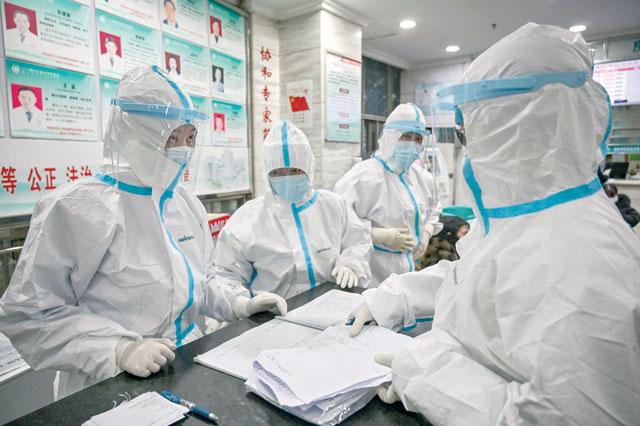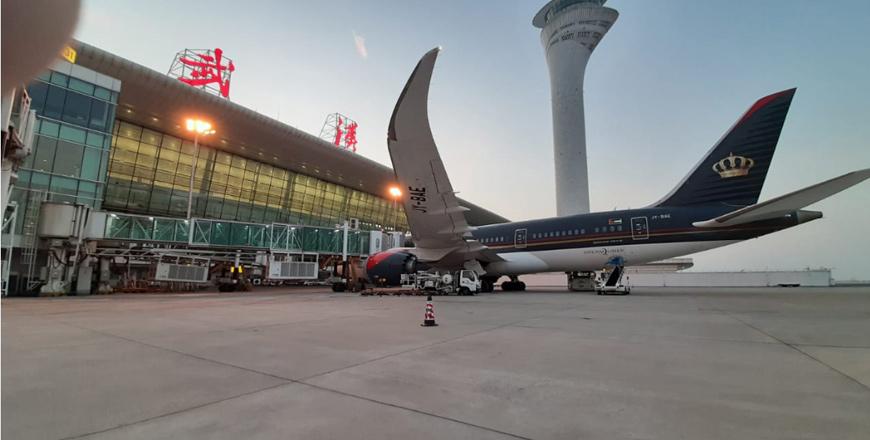You are here
Al Bashir Hospital releases 43 people from quarantine
By Maram Kayed , Petra - Feb 05,2020 - Last updated at Feb 05,2020
AMMAN — Forty-three people who were under precautionary quarantine have been released after medical examinations indicated that they had not been infected by the new coronavirus, Assistant Secretary General for Healthcare at the Ministry of Health Adnan Ishaq said on Wednesday.
The novel coronavirus began in the Chinese city of Wuhan in late December and has since been detected in at least 24 other countries, with over 24,000 reported cases worldwide, according to the World Health Organisation.
Ishaq said in a statement on Wednesday that 31 people are still quarantined in Al Bashir Hospital’s Epidemiological Department awaiting the results of their medical examinations.
According to Ishaq, those subject to precautionary medical measures include Jordanian and Arab students who were recently evacuated from Wuhan, with every returning student undergoing double testing as a precautionary measure.
The ministry is also tackling rumours of an infection in Russaifa, with Head of the Department of Disease Control at the Zarqa Health Directorate Khaled Bahti issuing a statement on Wednesday denying rumours circulating online that a Jordanian citizen had been infected with the virus.
According to information circulating on various social media outlets, a coronavirus case had been detected at Russaifa's Prince Faisal Hospital and the patient had been referred to Al Bashir Hospital in Amman.
Bahti denied these claims, saying that the patient was directed to the epidemiological department at Al Bashir to be examined for infection, but that the department conducted lab tests on the citizen and found him to be clear of coronavirus and instead infected with the seasonal flu.
The Ministry of Health has published an awareness pamphlet online concerning coronavirus, stressing that the virus' symptoms are similar to those of the common cold.
The pamphlet noted that symptoms of the virus include headaches, sore throat, diarrhoea, coughing, shortness of breath and high body temperatures, with more serious symptoms including kidney failure and acute pneumonia, according to the Jordan News Agency, Petra.
Coronavirus is transferred through direct contact with infected persons, contact with fluids from a patient through coughs or sneezes or touching objects that an infected individual has touched, then touching one’s mouth, nose or eyes.
The pamphlet called for adhering to preventative measures, the most important of which is maintaining hygiene and washing hands with water, soap or other antiseptic substances, especially after sneezing, and covering the mouth and nose with tissues when sneezing, disposing of the tissues afterwards.
Related Articles
AMMAN — His Majesty King Abdullah has issued directives to dispatch a plane to evacuate Jordanians residing in the coronavirus-hit Chinese c
AMMAN — A plane from Wuhan, epicentre of the newly discovered coronavirus, landed in the Kingdom on Saturday morning carrying students of Jo
The ministries of health and awqaf will organise awareness campaigns for pilgrims on precautions to take to avoid contracting the Middle East Respiratory Syndrome (MERS) coronavirus.

















